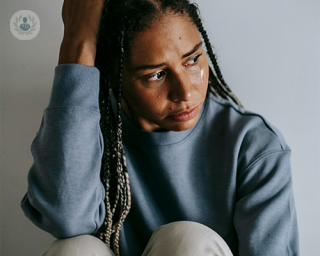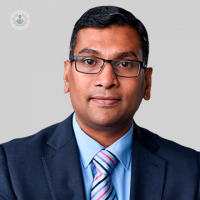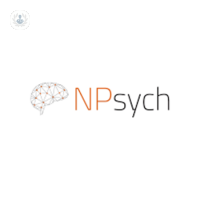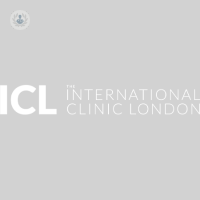What are mood disorders?
There are several types of mood disorders, but all are loosely defined by the fact that your general mood or emotional state is inconsistent and affects your ability to function properly. The following are well known mood disorders.
- Bipolar disorder – people experience episodes of depression and episodes of mania.
- Major depressive disorder – prolonged and persistent episodes of extreme sadness.
- Premenstrual dysphoric disorder – changes in mood that happen during the premenstrual phase of menstruation that goes away with the onset of menses.
- Persistent depressive disorder (dysthymia) – a chronic form of depression.
- Seasonal affective disorder (SAD) – depression that is linked to the winter season in the northern and southern latitudes when daylight hours are at their fewest.
- Cyclothymic disorder – similar to bipolar disorder, but the ups and downs are less extreme.

What are the main symptoms of mood disorders?
Symptoms of depression and depressive episodes may include:
- Fatigue and lethargy
- Feelings of hopelessness and helplessness
- Changes in appetite
- Low self-esteem
- Little motivation
- Feeling anxious
- Having difficulty making decisions
- Having suicidal thoughts or thoughts of harming yourself
Symptoms of mania can include:
- Extreme happiness and elation
- Lots of energy
- Being easily distracted
- Being easily irritated
- Having delusional thoughts, hallucinations or illogical thoughts
- Not eating
- Having little sleep
- Feeling self-important
- Talking quickly
How are mood disorders diagnosed?
If you visit your GP and they think you may be suffering from a mood disorder, you will be referred for a specialist assessment by a psychiatrist. A psychiatrist will ask you questions about your mood and changes experienced. You may be given a questionnaire as well. A thorough medical history will be taken as well.
What are the causes of mood disorders?
There are no certain or definitive causes of mood disorders, however, it is thought to be due to a combination of physical, environmental and social factors. Chemical imbalances are sometimes cited as a cause of mood disorders, as well as someone’s genetic predisposition to such conditions and whether they run in their family.
Emotional and social triggers can also cause mood disorders. Triggers can include the breakdown of a relationship, the loss of a job or loved one or physical, sexual or emotional abuse.
How are mood disorders treated?
Treatment will depend on the type of mood disorder you are diagnosed with, but might consist of, depending on your condition:
- Self-help groups
- Cognitive behavioural therapy (CBT)
- Counselling
- Antidepressant medication
- Lifestyle measures
Which type of specialist treats mood disorders?
A psychiatrist or psychologist would typically treat people with mood disorders.
05-31-2018 10-24-2023Mood disorders
What are mood disorders?
There are several types of mood disorders, but all are loosely defined by the fact that your general mood or emotional state is inconsistent and affects your ability to function properly. The following are well known mood disorders.
- Bipolar disorder – people experience episodes of depression and episodes of mania.
- Major depressive disorder – prolonged and persistent episodes of extreme sadness.
- Premenstrual dysphoric disorder – changes in mood that happen during the premenstrual phase of menstruation that goes away with the onset of menses.
- Persistent depressive disorder (dysthymia) – a chronic form of depression.
- Seasonal affective disorder (SAD) – depression that is linked to the winter season in the northern and southern latitudes when daylight hours are at their fewest.
- Cyclothymic disorder – similar to bipolar disorder, but the ups and downs are less extreme.

What are the main symptoms of mood disorders?
Symptoms of depression and depressive episodes may include:
- Fatigue and lethargy
- Feelings of hopelessness and helplessness
- Changes in appetite
- Low self-esteem
- Little motivation
- Feeling anxious
- Having difficulty making decisions
- Having suicidal thoughts or thoughts of harming yourself
Symptoms of mania can include:
- Extreme happiness and elation
- Lots of energy
- Being easily distracted
- Being easily irritated
- Having delusional thoughts, hallucinations or illogical thoughts
- Not eating
- Having little sleep
- Feeling self-important
- Talking quickly
How are mood disorders diagnosed?
If you visit your GP and they think you may be suffering from a mood disorder, you will be referred for a specialist assessment by a psychiatrist. A psychiatrist will ask you questions about your mood and changes experienced. You may be given a questionnaire as well. A thorough medical history will be taken as well.
What are the causes of mood disorders?
There are no certain or definitive causes of mood disorders, however, it is thought to be due to a combination of physical, environmental and social factors. Chemical imbalances are sometimes cited as a cause of mood disorders, as well as someone’s genetic predisposition to such conditions and whether they run in their family.
Emotional and social triggers can also cause mood disorders. Triggers can include the breakdown of a relationship, the loss of a job or loved one or physical, sexual or emotional abuse.
How are mood disorders treated?
Treatment will depend on the type of mood disorder you are diagnosed with, but might consist of, depending on your condition:
- Self-help groups
- Cognitive behavioural therapy (CBT)
- Counselling
- Antidepressant medication
- Lifestyle measures
Which type of specialist treats mood disorders?
A psychiatrist or psychologist would typically treat people with mood disorders.


Mood swings: definition, traits and causes
By Dr Richard Bowskill
2024-12-14
There is no medical definition for mood swings, however, there are several things that doctors look out for. Doctors will ask asking questions to try and elicit the nature of the mood swings. They ask for things such as the circumstances of the mood swings; whether they are triggered or whether they occur spontaneously. See more


Understanding mood disorders in adolescents: signs, causes, and support for ages 14-18
By Dr Gonzalo Salazar de Pablo
2024-12-13
Mood disorders are a group of mental health problems, sometimes called affective disorders, that refer to a disruption of the emotional state. They can affect anyone, but adolescents can be particularly vulnerable to their symptoms as they struggle with academic pressures, changes in their bodies and hormones, and difficulties socialising. In this article, consultant child and adolescent psychiatrist Dr Gonzalo Salazar de Pablo discusses the signs and causes of mood disorders in adolescents, and how to support them. See more


The truth about bipolar disorder
By Dr Luis Alameda
2024-12-12
People with bipolar disorder experience extreme mood swings from episodes of manic euphoria to hopeless depression. Find out why we need to be talking about this mental disorder more in this informative article from esteemed consultant psychiatrist and psychotherapist Dr Luis Alameda. See more


A quick guide to mood disorders
By Dr Emily Hale
2024-12-11
Mood disorders, also known as affective disorders, are a group of conditions where a person's emotional state is distorted or inconsistent with their circumstances and interferes with their ability to function. They are prevalent and can significantly impact one's quality of life. In her latest online article renowned clinical psychologist Dr Emily Hale provides patients with clear and concise information about mood disorders, their symptoms, and treatment options. See more
Experts in Mood disorders
-
Dr Christos Kouimtsidis
PsychiatryExpert in:
- Drug addiction
- Alcoholism
- Mood disorders
- Panic attacks
- Anxiety
-
Dr Beverley Marais
PsychologyExpert in:
- Anorexia
- Binge eating disorder
- Mood disorders
- Psychological treatments
- Cognitive behavioural therapies
- Bulimia
-
Dr Pramod Prabhakaran
PsychiatryExpert in:
- Dementia
- Mood disorders
- Anxiety
- Neuropsychiatry
- Adult ADHD
- Medicolegal
-
Dr Alan Ogilvie
PsychiatryExpert in:
- Bipolar disorder
- Mood disorders
- Psychotic disorders
- Post-traumatic stress disorder (PTSD)
- Anxiety
- Depression
-
- See all

NPsych
NPsych
7 Ducketts Mead, Roydon, Harlow, CM19 5EG
No existe teléfono en el centro.
By using the telephone number provided by TOP DOCTORS, you automatically agree to let us use your phone number for statistical and commercial purposes. For further information, read our Privacy Policy
Top Doctors

The International Clinic London
The International Clinic London
10 Harley Street
No existe teléfono en el centro.
By using the telephone number provided by TOP DOCTORS, you automatically agree to let us use your phone number for statistical and commercial purposes. For further information, read our Privacy Policy
Top Doctors

ADHD Health Clinic
ADHD Health Clinic
98 Crawford Street, W1H 2HL
No existe teléfono en el centro.
By using the telephone number provided by TOP DOCTORS, you automatically agree to let us use your phone number for statistical and commercial purposes. For further information, read our Privacy Policy
Top Doctors
-
NPsych
7 Ducketts Mead, Roydon, Harlow, CM19 5EG, BrentwoodExpert in:
- Anxiety
- Panic attacks
- Depression
- Psychology
- Rehabilitation
- Specialist rehabilitation
-
The International Clinic London
10 Harley Street, W1G Marylebone LondonExpert in:
- Addictions
- Anxiety
- Panic attacks
- Depression
- Fertility
- Child Psychology
-
ADHD Health Clinic
98 Crawford Street, W1H 2HL, Central LondonExpert in:
- Anxiety
- Depression
- Integrative medicine
- Psychology
- Psychiatry
- ADHD
- See all
- Most viewed diseases, medical tests, and treatments
- School refusal
- Migraine
- Maternal mental health
- Pelvic pain syndrome
- Seizures
- Parkinson's disease
- Expert witness
- Anxiety
- Long Covid
- Medical cannabis prescription








